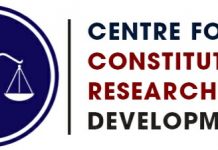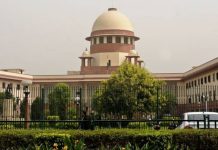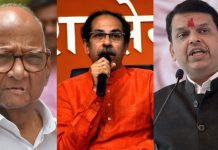Transgender people incorporate Hijras, Eunuchs, Kothis, Aravanis, and others, who have been a part of Indian culture for a considerable length of time. They held prominent positions in the society but their status started degrading when the British rolled out the Criminal Tribes Act in 1871 which particularly targeted them. This Act was revoked in 1952, yet the harm it caused is still noticeable. Transgender, for the first time, were recognized as the third sex in the 2011 Census.
After gathering ubiquitous criticism for its previous bills relating to transgender rights, the Government has once more concocted another Transgender Persons (Protection of Rights) Bill, 2019 (“the Bill” from herein). This Bill was introduced in the name of protecting transgender rights but sadly, it dehumanizes and humiliates transgender living in India. The Bill was passed by the Lok Sabha on 5th August 2019 and the transgender community marked it as “Gender Justice Murder Day”[i]. Presently, the Bill has been passed by the Rajya Sabha with no changes and is anticipating the President’s assent. This paper is an endeavor to toss light upon the principle provisions of the bill and analyze whether they pass the assessment of legality.
Shortcomings in the bill
There are a plethora of lacunae in the Bill which needs urgent attention of the Parliament to re-examine it. These are as follows:
- The definition of Transgender is not accurate
The Bill unequivocally centers on transwomen and hijras. On the contrary, there is little accentuation on intersex, gender queer and even transmen communities. It characterizes a transgender individual as one whose sex doesn’t coordinate the sexual orientation doled out during childbirth. It was pointed out that while the proposed enactment has no meaning of the discrimination, the meaning of transgender is vague.
- Prohibition against discrimination
The Bill forbids oppression against a transgender individual, including denial of service or unfair treatment in connection to education, employment, healthcare, access to, or enjoyment of goods, opportunities accessible to people in general, or generally involve a property, chance to hold public or private office, and access to a government or private establishment in whose care or custody a transgender individual is[ii]. Moreover, no government or private entity can discriminate against a transgender person in employment matters, including recruitment, and promotion. Yet after all of these prohibitions against discrimination, the Bill doesn’t offer reservations in employment and education for the transgender.
In NALSA v. Union of India[iii], the Apex Court announced that transgender people are to be considered as a third gender. It furthermore gave them the benefit of self-identification of their sex as male, female or third gender. In addition, the Court likewise held that on the grounds that transgender individuals were treated as socially and economically backward classes, they will be conceded reservations in admissions to educational institutions and occupations. But, the Bill is silent on this.
- Right to self-perceived gender identity
The Bill expresses that transgender people will have the right to self-perceived gender identity. But again, the difference in gender identity in documents is impossible without accreditation by the District Magistrate after verification of a sex reassignment medical procedure as is provided. This procedure of applying for a certificate and following a specific methodology could be said to be in contravention to the soul and spirit of the judgment which recognizes privacy, self-identity and personal integrity as fundamental rights of transgender persons. In Justice K.S. Puttaswamy v. Union of India[iv], the Supreme Court held that the right to privacy is a fundamental right under Articles 14, 19 and 21 of the Constitution. Accordingly, the non-inclusion of a confidentiality provision includes a further dent upon the legality of the Bill. Notwithstanding it, the explanations behind refusal and the procedures like the right to appeal if the declarations are not given, the procedure to correct the defects, etc are not referenced in the Bill.
- Offenses and penalties
The Bill imposes punishments for the offenses against transgender people like bonded labor, denial of use of public places, removal from household & village, and physical, sexual, verbal, emotional or economic abuse[v]. However, this was condemned on the ground that the Bill doesn’t satisfactorily characterize these offenses and retains provisions that could be utilized in a prejudicial way to target transgender individuals for criminal prosecution. The Bill sets out lighter sentences for several criminal offenses like sexual and physical abuse, when they are perpetrated against transgender individuals, notwithstanding sexual offenses upon cis-women pull in stricter punishments that may even reach out to life imprisonment. In this way, there is a tremendous dissimilarity between the punishments of a transgender as opposed to a cis-gender individual. This biased treatment is unintelligent and disregards Article 14 of the Constitution.
- Right to residence
The Bill implements a minor’s right of residence compelling any trans individual below 18 to live together with their natal family. Though, the families are frequently a source of abhorrent viciousness against the trans community driving them to isolate from the natal family. It is generally realized that transgender persons face various difficulties with their biological families, for example, the strain to adjust to the sex they were brought into the world with, being out casted and even brutality. This provision doesn’t address these issues yet just requires the Courts to send them to rehabilitation centers.
- Health Care
The Bill additionally tries to provide rights of health facilities to transgender people including separate HIV surveillance centers, and sex reassignment surgeries. It likewise expresses that the government will review the medical curriculum to address the medical problems of transgender people, and give far-reaching restorative protection plans or medical insurance schemes to them. In spite of the fact that it’s a positive step taken by the Government, the medical community needs information on transgender bodies and gives no course of events for the implementation of the same.
- Establishment of National Council for Transgender Persons (NCT)
The NCT led by Union Minister for Social Justice alongside different ministers will prompt the Central Government to monitor the effectiveness of strategies and policies for transgender people. The Bill will likewise review the complaints and redress the grievances of transgender people. However, there ought to be a more noteworthy portrayal of the individuals of the transgender community in the decision-making process as it will affect them directly.
- Other Issues
Certain criminal and personal laws that are at present in force just perceive the genders of ‘man’ and ‘woman’. It is uncertain how such laws would apply to transgender people who may not relate to both of the two genders.
The Bill doesn’t address issues relating to marriage, inheritance, parenthood, and adoption as well. Given that these are basic human rights and that the judgment perceives the fundamental right of transgender community, keeping away from tending to these issues is by all accounts a glaring hole for the rights and welfare of the transgender community.
Additionally, the Bill is silent whether a trans individual who holds a male or female gender certificate can approach for government welfare plans and projects implied for transgender individuals.
Implications of the Bill
The Bill will make all stakeholders responsive and responsible for maintaining standards underlying the Bill and likewise expedite greater accountability on part of the Central and State Governments/Union Territories (UTs) administrations for issues concerning transgender people. It will profit an enormous number of transgender people in mitigating the maltreatment, abuse, stigma, and oppression against this marginalized section so as to bring them into the mainstream of society. The Bill will likewise prompt more prominent comprehensiveness and make the transgender people productive members of society. These will bring a tremendous change in the society if only, the shortcomings are analyzed properly.
Conclusion & Suggestions
The Bill has left more questions unanswered than the concerns it intends to address. If this Bill is passed into law in its present form, it would create only hurdles for existing transgender who are already struggling in the society. Transgender rights activists’ emphasized that the Bill has left them uncovered, helpless before a law. In light of these concerns and certain critical shortcomings identified above, the Bill in its present structure requires re-examination.
A few of the recommendations that the author would like to mention are as follows:
- The reference of intersex persons in the Indian Bill is a significant incorporation yet the Bill ought to be renamed the Rights of Transgender and Intersex Persons Bill and incorporate unequivocal protections for intersex individuals in accordance with India’s international human rights commitments.
- The appropriate government should implement stigma and discrimination reduction measures through mass media awareness. Thailand is one of those model nations wherein all the necessary facilities are being made accessible to the Transgender Community.
[i] https://www.downtoearth.org.in/blog/governance/why-is-transgender-community-unhappy-with-trans-persons-bill–67158.
[ii] Section 3, The Transgender Persons (Protection of Rights) Bill, 2019.
[iii] National Legal Services Authority vs. Union of India, (2014) 5 SCC 438.
[iv] Justice K. Puttaswamy vs Union of India, (2017) 10 SCC 1.
[v] Section 18, The Transgender Persons (Protection of Rights) Bill, 2019.













